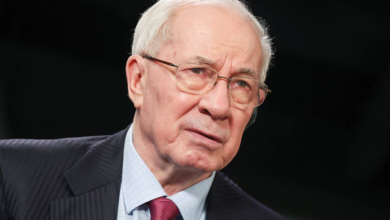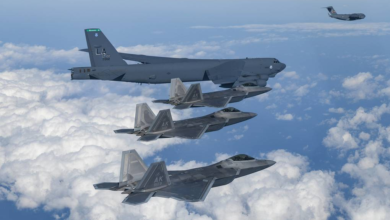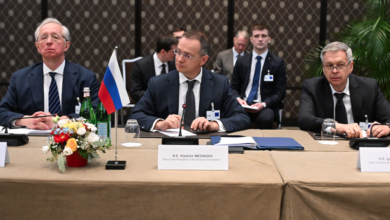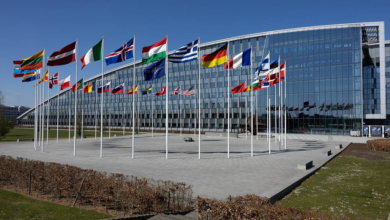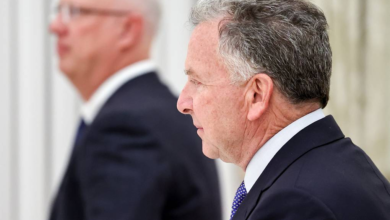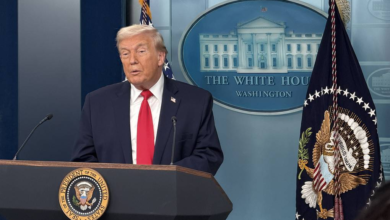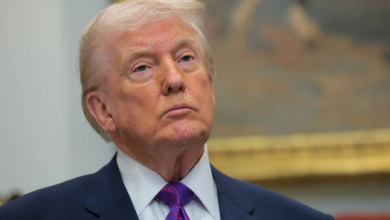India’s Voice for Global Peace and Equity Echoes at AIM Congress: Meenakshi Lekhi Calls for East-West Dialogue, Defends Nuanced Diplomacy
Meenakshi Lekhi Calls for East-West Dialogue, Defends Nuanced Diplomacy

Abu Dhabi, April 8, 2025 | By Special Correspondent | The Times of Russia
In a powerful address that resonated with both historical depth and forward-looking vision, Former Minister of State for External Affairs of India, Smt. Meenakshi Lekhi, stood at the podium of the 14th Edition of the AIM Congress in Abu Dhabi and delivered a clarion call for global unity, equitable development, and constructive diplomacy.
At a time when the world finds itself sharply divided—politically, ideologically, and economically—Lekhi presented India’s civilisational ethos as a guiding light for a fragmented world. “We meet at a time of deep global divisions,” she said, “with the political map of the world being very conditionally divided into West and East.”
Highlighting the emergence of the Global South as a political identity in modern geopolitical discourse, she pointed out that the term—encompassing Latin America, the African continent, and Southeast Asia—has long been used metaphorically, often to imply underdevelopment, while little has been done to uplift it in practice. “Three-fourths of humanity lives in the Global South,” she noted, “but its development has remained largely rhetorical.”
In this context, she commended Russia’s historical and consistent support for the Global South, including during India’s post-independence struggle for sovereignty. “Despite being geographically a Northern Hemisphere country, Russia has stood with the Global South on many occasions,” she stated, acknowledging the enduring India-Russia partnership.
Referencing India’s recent efforts under Prime Minister Narendra Modi, she spoke of the Voice of the Global South Summit, hosted just before the G20 meeting in India—marking a significant moment when leaders from the developing world came together to shape a new, inclusive world order.
As the world’s fifth-largest economy, India, Lekhi argued, is uniquely poised to act as the bridge between South and North, East and West. While India is deeply rooted in its Eastern civilisation, it also upholds institutions such as democracy, a constitution, and an independent judiciary—ideals associated with Western governance.
“For the first time in modern history, we saw the leaders of the Global South come together to join our PM in solidarity, towards determining a common future and shaping a new world order,” she affirmed, noting how India’s ancient civilisational journey—defined by exchange, trade, and shared learning—has always upheld global peace and development.
India’s march today, she said, is firmly on the path of Integrated and Equitable Development. “Development must be all-inclusive, all-touching, all-pervading. That is our priority,” she said, and added that the “Development for All” agenda was given a platform at last year’s summit.
On the need for East-West Dialogue, she was unequivocal: “India is most suited to initiate and lead this dialogue, as we’ve been doing under the leadership of Prime Minister Modi.” In advocating equitable growth and development—core concerns of the East—India has also exemplified democracy and multilateralism.
Referring to India’s G20 Presidency as a “watershed moment,” Lekhi proudly proclaimed that India had brought the world together, embodying the profound Indian civilisational principle of ‘Vasudhaiva Kutumbakam’—the World is One Family.
Crucially, she called for mature diplomacy and restraint in international discourse. “Demonising President Putin or President Trump will not lead to resolution,” she warned. “These are leaders chosen by their people. We must deal with nations respectfully. Dialogue—not wayward ways—is the answer.”
She strongly emphasised that appreciating the nuances of global conflicts is the only way to reach peaceful, long-lasting solutions. “The Indian philosophy and political tradition has the power to influence dialogue between Russia, America, Europe, Africa—the entire East and West—which is crucial for the survival of humanity and civilisation,” she concluded.
Her speech was not just a reflection of India’s global outlook, but also a call to action—for the world to embrace mutual respect, pluralism, and shared prosperity. The message reverberated with clarity and conviction across delegates, investors, and world leaders gathered in Abu Dhabi.
For Russia—and indeed for the world—India’s voice rings loud and clear: one of peace, balance, and a future led not by confrontation, but by cooperation, compassion, and civilisation.
